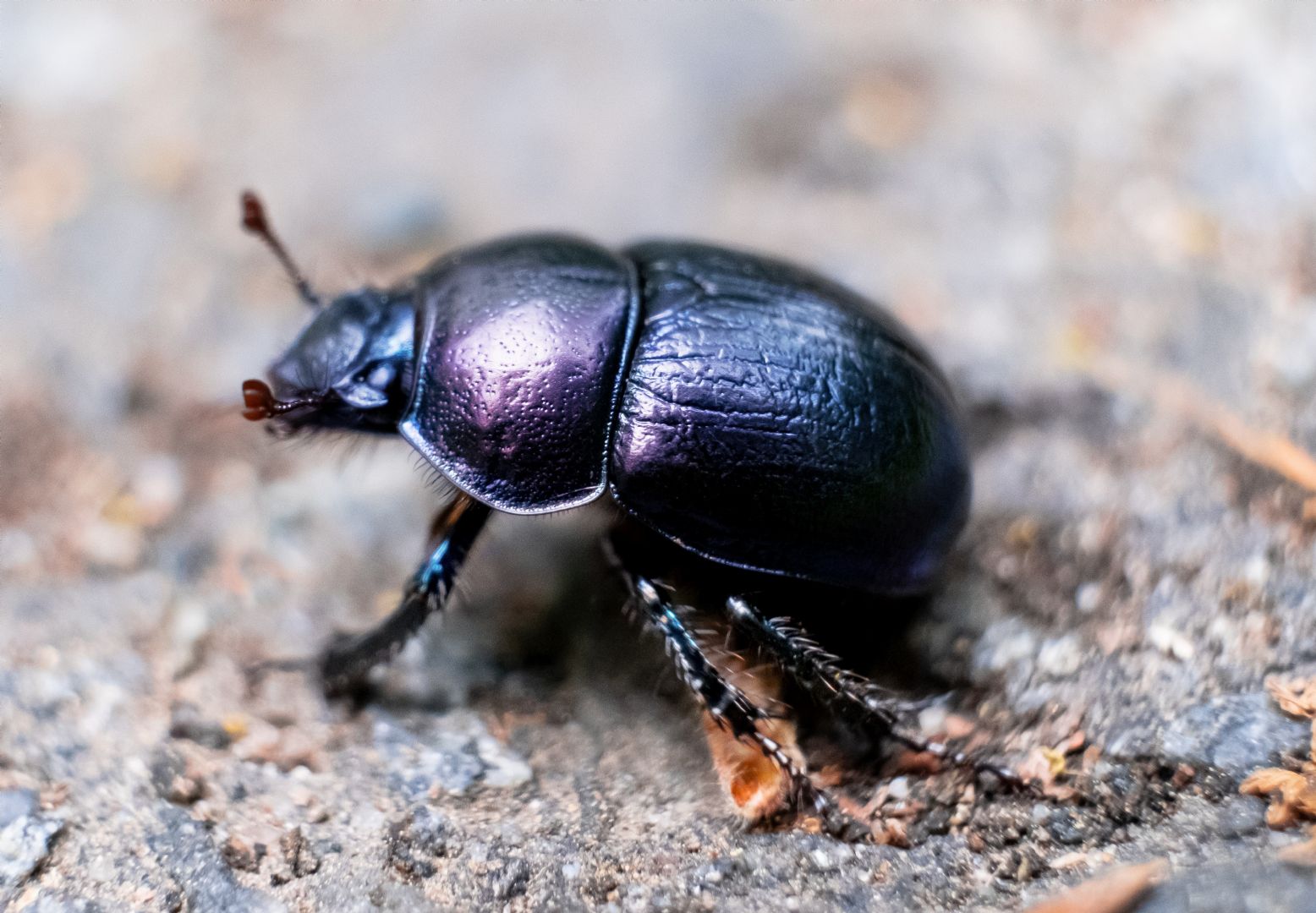
Dung beetles can contribute to healthy livestock and soils!
Dung beetles play a key role in our ecosystem through their various functions and activities relating to dung, particularly cow pats on pasture. It has been estimated that dung beetles save the UK cattle industry £367 million per year through the provision of ecosystem services (1).
There are two main groups of dung beetles in the UK. ‘Dwellers’ inhabit freshly laid dung, using it as a shelter and source of food. Dwellers grow and reproduce in the dung, with beetle larvae also feeding off the dung as they develop. ‘Tunnellers’ collect pieces of cow dung and burrow them into the ground. Tunnellers reproduce and release larvae in these holes created beneath the dung, living and feeding off the buried faecal matter. In warmer climates outside the UK, another group – ‘Rollers’ - collect and move dung away from the soil surface (2).
Key Benefits
Dung beetles rapidly break down dung, reducing the time that it is present on the pasture surface, increasing the turnover of available grazing area. They also improve soil conditions by eating and burying the dung, recycling its nutrients, reducing soil compaction and distributing soil microorganisms (3). The actions of these beetles enable the soil to trap more carbon - research suggests that dung beetles reduce GHG emissions from cow pats on pasture by 7-12% (4)! These figures highlight the important role dung beetles play in climate-friendly farming.
Dung beetles offer so much potential benefit for farming that a website is dedicated to them - www.dungbeetlesforfarmers.co.uk – which highlights some additional valuable contributions of dung beetles:
- Pest suppression: Dung beetles remove the habitat conditions needed for parasites and flies to thrive by breaking down dung more rapidly.
- Improving water infiltration: Dung beetles dig burrows that increase soil permeability and reduce soil erosion, pollution of watercourses, and surface runoff.
- Increased biodiversity: Dung beetles are a key indicator of a healthy micro-habitat ecosystem since they pull dung down into the ground, encouraging soil fauna, including earthworms.
- A source of prey for other wildlife: Dung beetles are a major food source for bats and wading birds.
Dung beetles are in trouble!
Dung beetle populations are rapidly declining. Recent evidence suggests that almost 50% of them are endangered, mostly due to farming practices (5). Dung beetles are not adapted for housed systems or slurry, so rely on dung on pasture to survive.
In addition, using pour-on treatments such as wormers, and even treating animals with antibiotics has been shown to be detrimental to dung beetles (6). Specifically, one of the most widely used worm products, Ivermectin, is found to be highly damaging to dung beetles.
How farmers can help
According to Dung Beetles for Farmers, there are three main ways that farmers can assist the dung beetle population.
- Outwintering: Species of dung beetles differ in their biology, and this can be affected by seasonal variations. Some species remain active even in winter months and therefore need dung to eat and reproduce. To aid the dung beetle species in these conditions, farmers can outwinter their animals to increase the amount of dung on the fields. Some species like areas where livestock graze around trees so planting more shelter where animals graze can support these dung beetles enormously.
- Forage type feeds: It has been noted that dung beetles thrive on fibre-rich cow pats that are soft, and avoid sloppy, liquid pats or dung produced from grain consumption. Therefore, a pasture-based diet can be an excellent way of boosting the health of the dung beetles since forage-based feed produces a pat favourable to the dung beetles.
- Preventive health management: using wormers - particularly Ivermectin ones - can affect the health of dung beetles. Therefore, adopting preventive health practices such as good pasture management and rotation, regular faecal egg counting to assess which pastures and animals are more affected and then targeting treatments could reduce the use of wormers. Vaccinations against common diseases, especially if operating an open herd/flock can reduce the need for treating animals with antibiotics, thus protecting dung beetles. Dung Beetles for Farmers recommend working with your vet to adopt a Prevent, Assess, Treat (PAT) approach.




